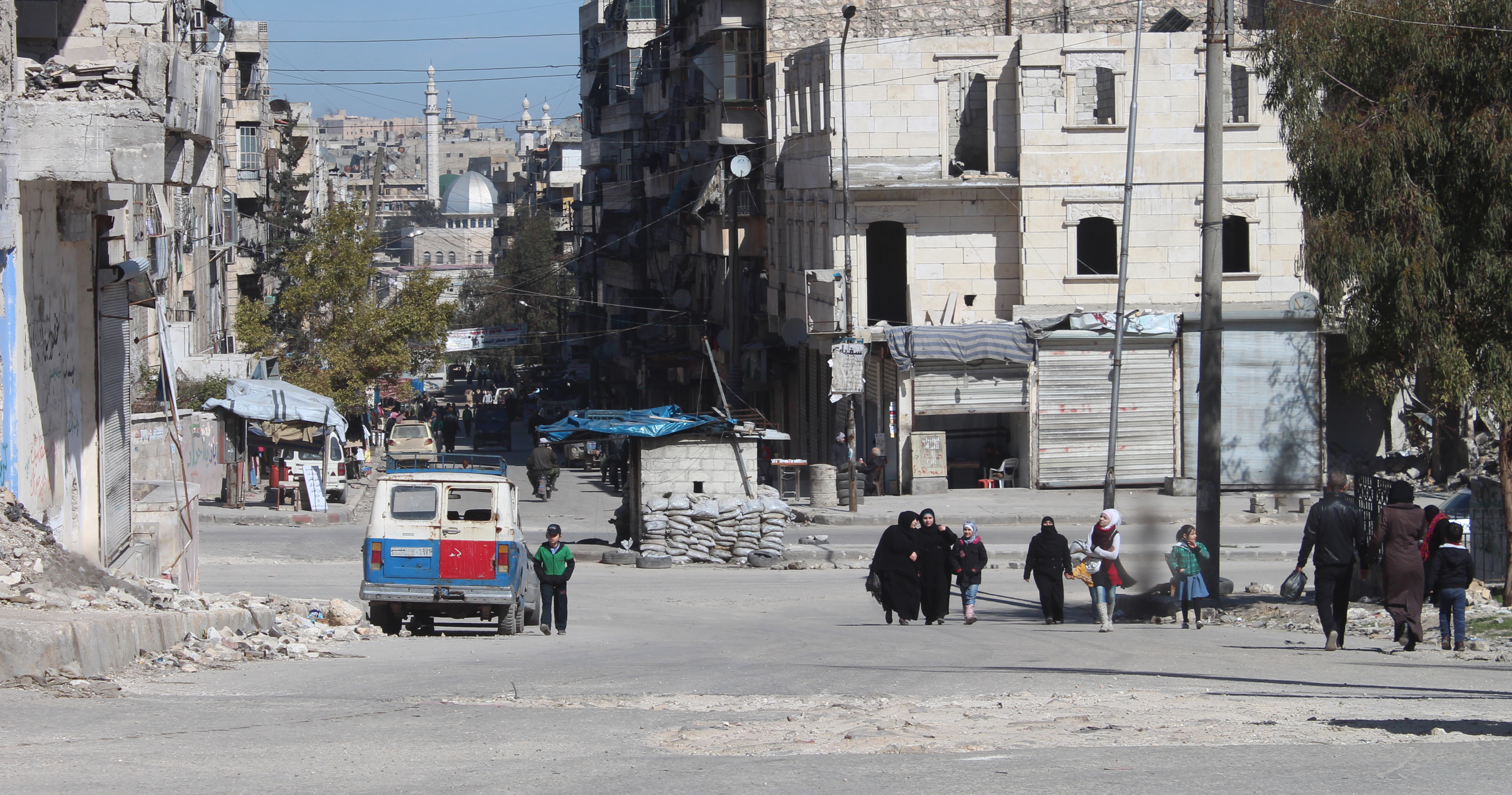Stopped by the Morality Police in Raqqa

M stood alone in a women’s clothing shop in Raqqa, waiting for the shopkeeper to come back. He had gone out to evening prayers and left her in the shop in the meantime. Unfortunately, she was spotted by a [morality police] “hisbah patrol” doing the rounds of the neighbourhood to ensure that no shops remained open during prayer time.
Though prayers had just ended, the patrol van stopped outside the shop. Two men stepped out, and M. had no idea what to do when they called her to come out. One of them was a Syrian from Raqqa. The other man, with a long beard and scowling face, looked like a foreigner from Pakistan or somewhere in that region. That was enough to strike terror into M.’s heart, as she knew it would be almost impossible to understand him or to explain herself adequately.
Her only crime was remaining inside the shop during prayer time.
She emerged slowly, hesitantly, from the shop, her niqab [veil] firmly in place.
The screaming began immediately, in formal Arabic. “What is it that you’re doing here?”
“I’m waiting for the shop owner to come back,” M. said.
“And where is he?”
“I don’t know, sheikh,” she answered.
M tried to defend herself and justify her presence in the shop, to no avail. Every time she opened her mouth to speak, the screaming intensified, and so did her terror. She felt alone, weak and abandoned, especially after a group of young men gathered on the pavement in front of the shop. They looked on without intervening, some of them murmuring to one another that what was going on was “unacceptable”.
The foreigner wanted her to get into the hisbah van to be taken to headquarters so that she could be punished appropriately for her crime.
He stepped closer to her and ordered here to get into the vehicle.
She stumbled a few steps backwards and asked, “How can I go with you? I’m all alone.”
He immediately seized on this, saying, “So you’re afraid to be alone with us, but you’re not afraid to be alone in the shop?”
The shouting grew more aggressive as he insisted that she get in the vehicle, but she stammered out a refusal, trying to delay them in hope that something might happen to save her.
Finally, one of the young men stepped forward in her defence, arguing that she hadn’t done anything wrong. The Syrian militant roared back, “No one interferes in our business!”
The foreigner pulled a long stick out of the van, threatening M. with a beating if she didn’t comply and get in.
In a quiet, tear-filled voice she begged, “Please sheikh, please no.”
“Get in!” he bellowed. “You animals don’t understand unless you’re beaten.”
She finally got in to avoid being hit. The voices from the crowd rose in protest, and the Syrian militant responded by cocking his weapon in their faces.
At that moment, the shopkeeper, a man in his twenties, arrived. He approached the foreigner and told him, “I’m the owner of this shop.” The foreigner responded by beating him savagely with his stick.
M seized her chance. Mustering all her courage, she climbed out of the van and ran for her life
By the time the foreigner spotted her, it was too late. He ran after her but she managed to lose him in the throng of people at the market, sensing that she had just barely escaped from hell.
